
NEW YORK, April 21, 2016 /PRNewswire/ -- Advanced technology that improves smartphone usability, such as wireless charging and fingerprint scanners, enables wireless subscribers to be more actively engaged with their device and helps increase their satisfaction, according to the J.D. Power 2016 U.S. Wireless Smartphone Satisfaction StudySM—Volume 1.
Now in its 10th year, the Wireless Smartphone Satisfaction Study measures customer satisfaction based on five factors (listed in order of importance): performance (25%); ease of operation (21%); battery (20%); physical design (19%); and features (16%). The study measures customer satisfaction with wireless OEMs across Tier 11 wireless carriers. Satisfaction is calculated on a 1,000-point scale.
Offering smartphone features and functionality that help customers incorporate their devices into their daily routines is critical for increasing satisfaction with the user experience. Wireless charging and fingerprint scanners are among those advanced technologies that improve ease of operation, which, in turn, leads to higher customer satisfaction with their device.
Wireless Charging Boosts Satisfaction and Customer Spend
Wireless charging is more convenient than wired charging, decreasing the perception of device downtime and enabling customers to use phones for longer periods and more frequently. Wireless charging is also associated with high overall satisfaction. According to the study, satisfaction is 28 points higher for smartphones that are enabled with wireless charging, compared with those that do not have this feature (852 vs. 824, respectively).
"Batteries are the life force of a mobile device, and advanced technology that can improve overall usability such as wireless charging can have a significantly positive impact on the overall user experience," said Kirk Parsons, senior director and technology, media & telecom practice leader at J.D. Power. "When launching a new smartphone model, carriers should be mindful of how they position new device features such as wireless charging and fingerprint scanning. This can influence model selection and a customer's experience with the device. When customers are satisfied with the selection of their smartphone model, the device manufacturer and carrier can benefit through customer loyalty and repurchase intent."
Notably, customers who own phones with wireless charging spend more on apps, compared to those who own phones without wireless charging ($20 vs. $18, respectively). Additionally, customers with wireless charging pay more for their monthly service than those without wireless charging ($137 vs. $121, respectively).
Fingerprint Scanners Simplify Phone Access
Among the 62% of customers who own phones with fingerprint scanners, satisfaction is relatively high largely because this feature simplifies the process of securely accessing phones, which enables customers to log on to their phones more easily and frequently. Overall satisfaction for phones with fingerprint scanners is 42 points higher than for phones without this feature (844 vs. 802, respectively).
Study Rankings
Apple devices rank highest in overall satisfaction among Sprint (843), T-Mobile (845) and Verizon Wireless (830) wireless customers. Samsung devices rank highest among AT&T customers (849). Among carriers, overall satisfaction with smartphones is highest with Sprint customers (834), followed by AT&T (833), T-Mobile (825) and Verizon Wireless (823) customers.
Following are some of the key findings of the 2016 study:
- Customer Interest in Wireless Charging Is High: Customers cite "wireless charging" with the highest frequency (49%) when asked to indicate the top three features they would like on their next smartphone. "Wireless charging" is followed by "seamless voice control" and "facial recognition/biometric security/fingerprint scanner" (19% each).
- Phone Subsidies Lower the Average Price Paid: Phone subsidies substantially reduce the average price paid for a smartphone among those with service contracts ($294, excluding free phones) than among those with equipment installment plans (EIPs) ($444) or leases ($405).
- Shifting Away from Service Contracts: The shift away from service contracts contributes to growth in the average smartphone price to $318 from $287 last volume and $239 in 2015 Vol. 1.
The 2016 U.S. Wireless Smartphone Satisfaction Study—Volume 1 is based on experiences evaluated by 11,693 smartphone customers who have owned their current smartphone device less than one year and who are customers of one of the four Tier 1 carriers. The study was fielded between September 2015 and February 2016.
Media Relations Contacts
John Tews; Troy, Mich.; 248-680-6218; [email protected]
For information about the 2016 U.S. Wireless Smartphone Satisfaction StudySM—Volume 1, visit http://www.jdpower.com/resource/us-wireless-smartphone-satisfaction-study
See the online press release at http://www.jdpower.com/press-releases/2016-us-wireless-smartphone-satisfaction-study-volume-1
About J.D. Power and Advertising/Promotional Rules www.jdpower.com/about-us/press-release-info
1 A Tier 1 carrier includes the four national wireless providers in the United States: AT&T, Sprint, T-Mobile and Verizon Wireless.
Logo - http://photos.prnewswire.com/prnh/20130605/LA26502LOGO
Photo - http://photos.prnewswire.com/prnh/20160419/357171-INFO
Photo - http://photos.prnewswire.com/prnh/20160419/357172-INFO
Photo - http://photos.prnewswire.com/prnh/20160419/357169-INFO
Photo - http://photos.prnewswire.com/prnh/20160419/357173-INFO
Photo - http://photos.prnewswire.com/prnh/20160419/357170
SOURCE J.D. Power
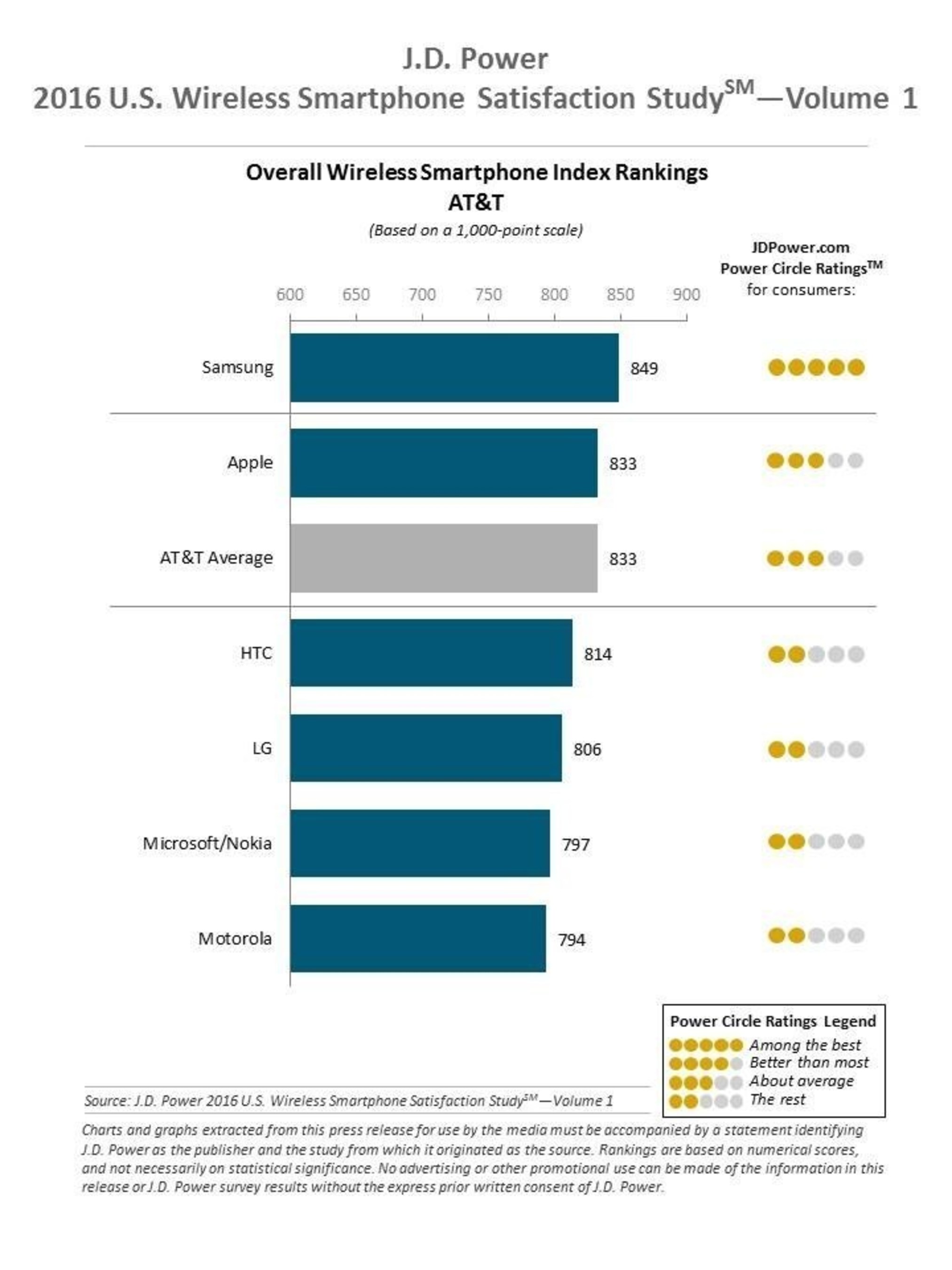
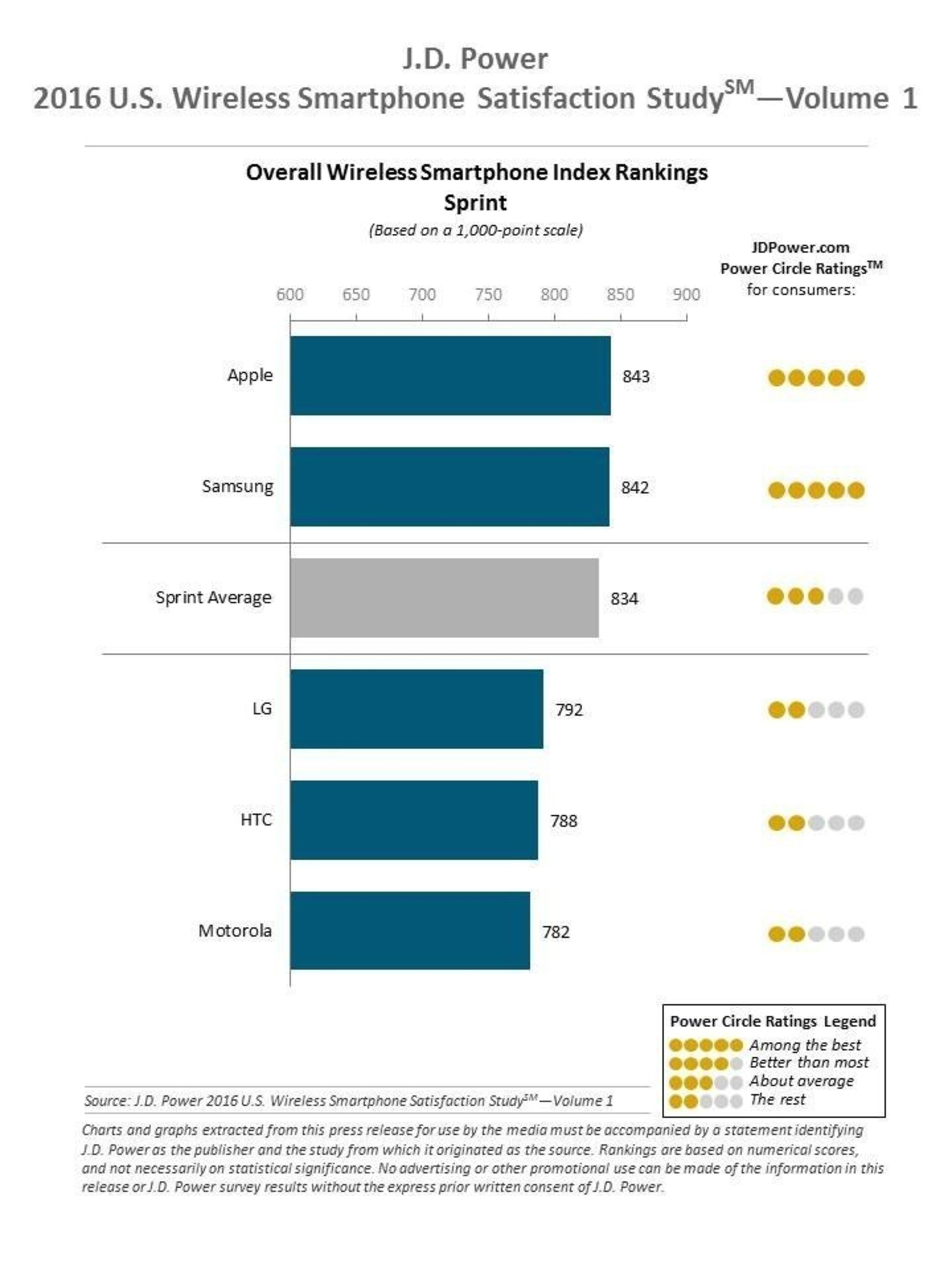
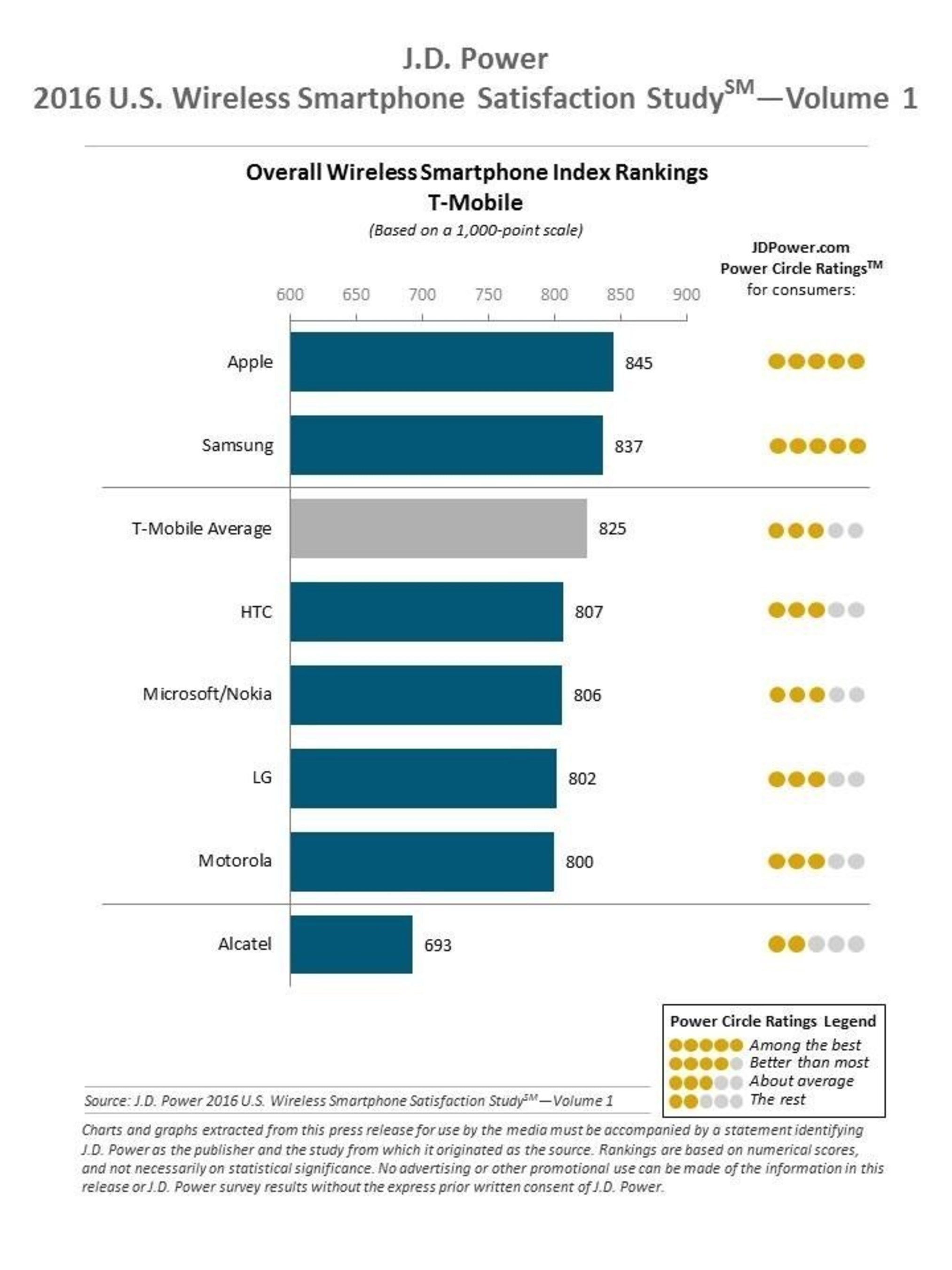
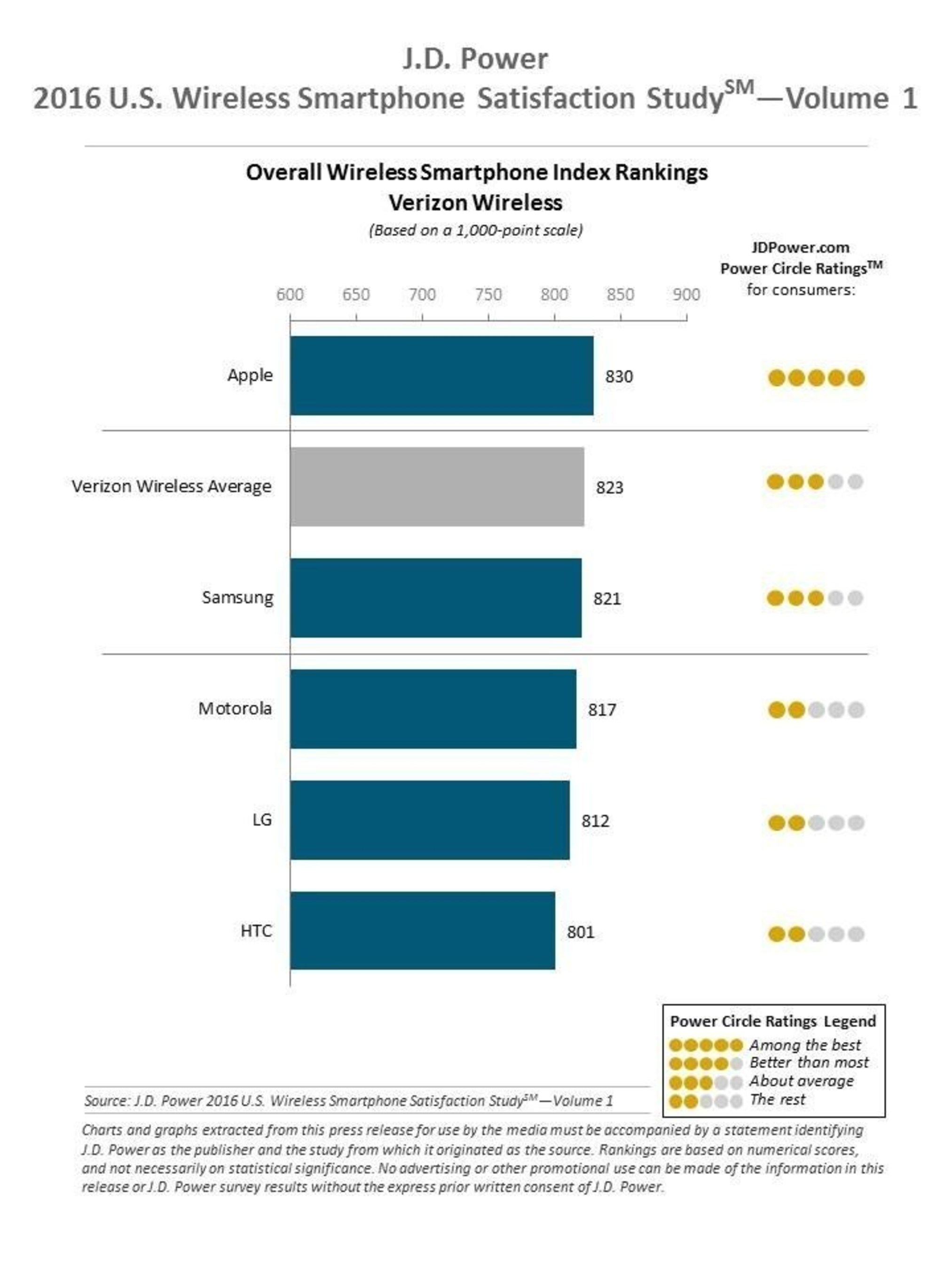
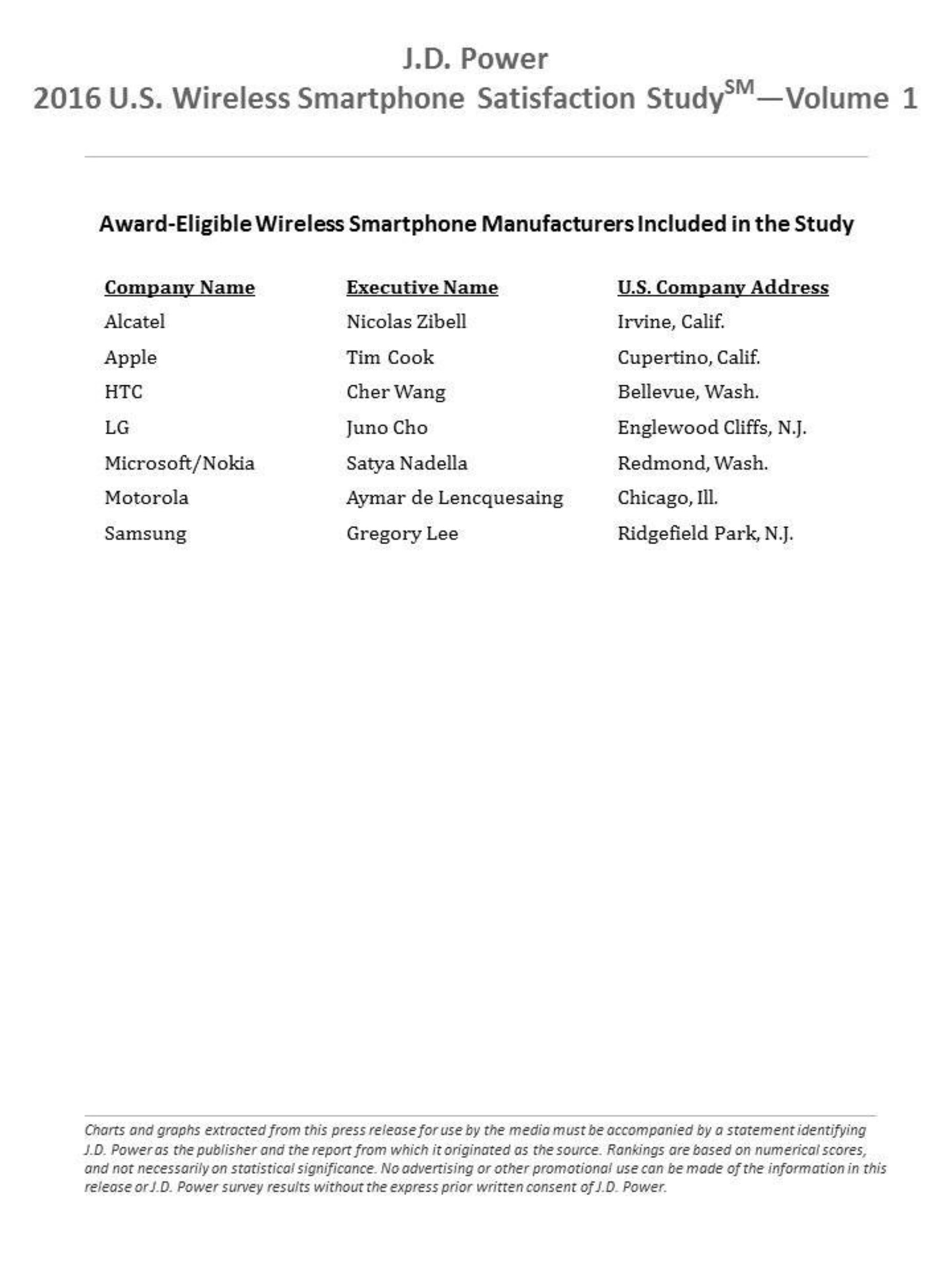

Share this article